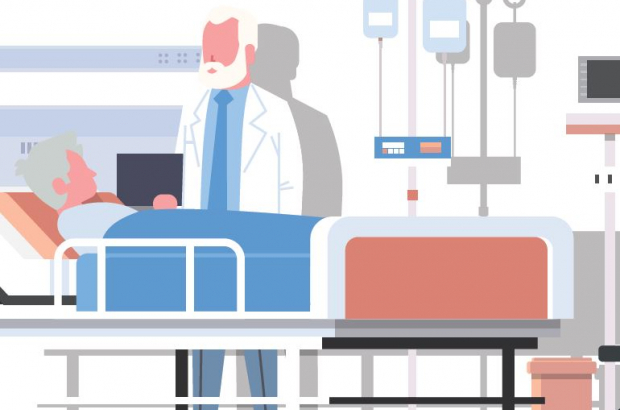- Daily & Weekly newsletters
- Buy & download The Bulletin
- Comment on our articles
Retirement in Belgium: In sickness and in health
If you live in Belgium, you have long since been convinced of the benefits of the Belgian health care system. Early advance care planning allows you to plan ahead for when you fall gravely ill.
Healthcare
As a beneficiary of a pension under Belgian legislation and your country of origin, you and your family members are entitled to continuing health care at the expense of the Belgian health insurance system, and are consequently subject to Belgian social security legislation if you are registered in Belgium.
If you are living in Belgium as a beneficiary of a pension under the legislation of several countries, you and your family members are also entitled to continuing health care in Belgium at the expense of the country to whose legislation you have been subject for the longest period of time. To determine which country is responsible for covering the costs of your health care, contact your health insurance provider in the country of origin.
Person of trust: Another pair of eyes and ears
As you age, doctors’ visits become more frequent. Perhaps you are uncertain about your French or Dutch, of perhaps you’re not that familiar with the Belgian health care system. It can be useful to have someone with you when you attend a doctor’s appointment. You can name this person as your formal person of trust.
This person of trust is allowed to accompany you during visits to your GP, specialist physician, dentist, pharmacy or physiotherapist. He or she can help you exercise your patient rights. The person of trust may not decide in your place. However, you can give permission for him or her to receive information when you are not present.
The person of trust and the representative for your patient’s rights are not one and the same (see further). On the website www.patientrights.be or through your health insurance provider you can find a sample form to appoint a person of trust. Have it added to your patient records with your GP or with another medical professional.
Early advanced care planning
Advanced care planning allows you to consider your wishes and expectations for if you were to fall gravely ill. Do you want lifesaving treatment or only comfort care at that time? Will you allow artificial hydration? Reanimation? You can discuss your wishes with relatives, friends, your GP or another medical professional.
You can also formalize them. With a negative living will you can record which treatments you no longer want at a time when you are no longer able to speak your mind, i.e. when you are in advanced stages of dementia or in a coma. You do not need witnesses when drawing this up.
A negative living will cannot be registered; doctors however are obliged to respect the wishes recorded in this document. Have it added to your patient record. If you named a representative for your patient rights, they can make sure that physicians respect your negative living will. The negative living will is valid indefinitely. You can recall or adapt it at any time.
Representative patient rights
If you are no longer able to exercise your patient rights, your representative will do that for you. That is, if you formally named your representative beforehand. Your representative will speak for you when you are incapacitated.
In case you did not appoint a representative, a cascade system kicks into gear, determining who will represent you: first your live-in partner (spouse, legal cohabiting or de facto unions), then an adult child, then a parent, an adult brother or sister.
If there is no one to represent you and if you are no longer able to decide for yourself, the justice of the peace will appoint an administrator.
Care contract: Remunerating informal help
If you want to ensure the informal help and care you may need when you are older, you can draw up a care contract. In this contract, which you conclude with neighbours or acquaintances who act as caregiver(s), you determine which kind of help or care they will provide and how they will be renumerated.
Care contracts are a useful tool for elderly people who do not have relatives (nearby). They detail which help or care will be provided, ranging from light care such as shopping or transportation, to more intensive home care. The care contract can be drawn up with one or several caregivers. It is best to seek the advice of a notary, he or she will help you draw up the document.
This article appears in Golden years in Belgium: an expat guide to life after retirement, produced by the King Baudouin Foundation and the Federation of Notaries, available to download for free.


















